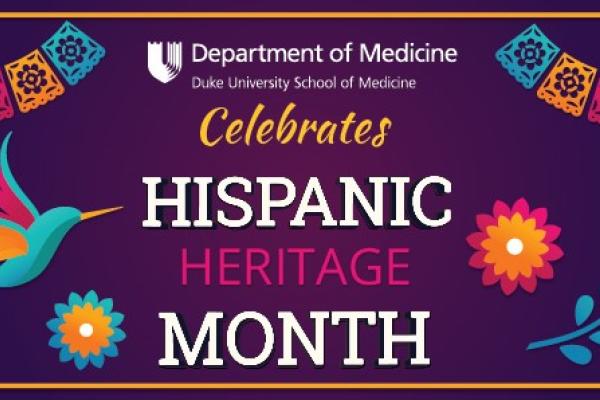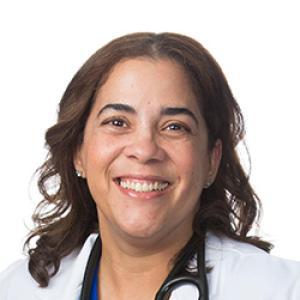
By Leonor Corsino, MD, MHS
Associate Professor, Endocrinology, Metabolism and Nutrition
Dr. Corsino is the former associate chair for the Department of Medicine’s Minority Recruitment and Retention Committee (MRRC). She has actively supported Hispanic/Latino recruitment and retention in the department and founded the Latino Initiative in 2012. She shares her perspectives on the importance of Hispanic Heritage Month in Medicine.
Hispanic Heritage Month, September 15- October 15, is an important time of recognition and acknowledgment of the contributions of Hispanics/Latinos to this country in all areas, including Medicine. The United States Hispanic/Latino population represents the largest ethnic minority in the country, comprising 19% of the U.S. population. Yet, the contributions of Hispanics/Latinos to medicine are significant and usually go unnoticed or unrecognized.
In October 2012, when I assumed the role of associate chair of the MRRC, we developed and implemented strategies to increase Hispanic/Latino recruitment and retention in the department with the Latino Initiative. Our first objective was to expand the pool of Hispanic/Latino physicians and investigators in the department, followed by improving health care delivery to the Hispanic/Latino population in the area. We also aimed to promote research in minority health that will allow us to close the current health disparity gap affecting the Hispanic/Latino population.
During this time, we worked towards improving mentoring for our self-identified Hispanic/Latino residents, fellows, and faculty. We created supportive social gatherings to increase communication and support among Hispanics/Latinos in the DOM. This initiative remains active in our department, under the leadership of Dr. David Ortiz-Melo. We worked closely with the Duke School of Medicine Latino Medical Students Association to increase Hispanic/Latino representation in the SOM. We worked on the reimagining of the SOM Medical Spanish course. This course is currently directed by Dr. Liza Genao. We collaborated with the Health System to gather leadership support to implement the Spanish version of Duke Mychart.
We increased our presence in the community by strengthening our relationship with institutions serving the Hispanic/Latino population and supporting collaborations dedicated to researching diseases disproportionately affecting the Hispanic/Latino population. We have further identified projects addressing health disparities as they pertain to the Hispanic/Latino population, and we continue to advocate for access to care for Hispanic/Latino patients in our role as part of the Board for the Project Access of Durham County and LATIN-19.
As a department committed to excellence in health education, clinical practice, and research, we recognize the need to build an inclusive environment for all. Our work to address disproportionate representation is a major priority and is an opportunity to continue building a health care workforce that represents our patient populations.
This disproportional representation of Hispanics/Latinos in medicine and current health disparities affecting this population poses a challenge to the nation. As a community, let’s recognize and elevate the progress we have made and acknowledge the long road ahead to increase the representation of this segment of the population in our department.
Hispanics/Latinos continue to make a difference in all aspects of medicine, and the DOM community needs to continue to invest in the inclusion of Hispanics/Latinos in leadership roles in the department. As a community, let’s continue to invest in the next generation of Hispanic/Latino physicians, scientists, educators, and leaders.
